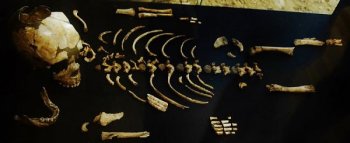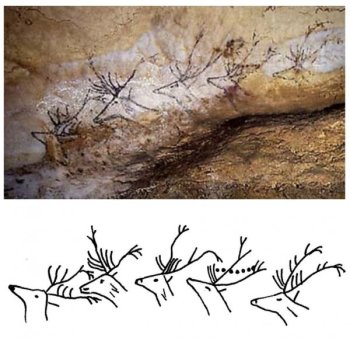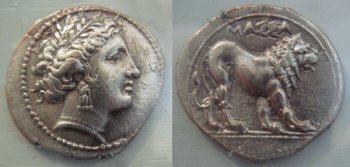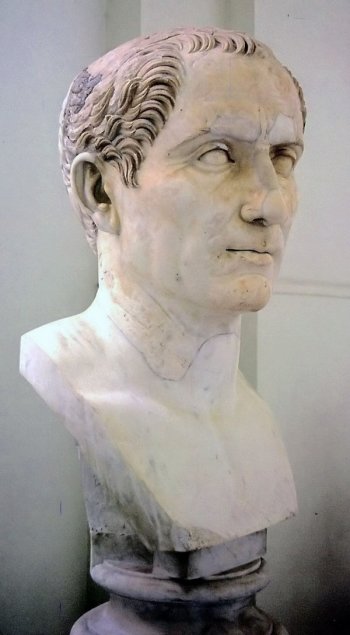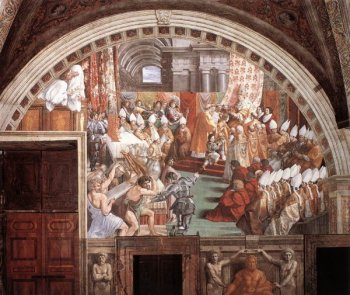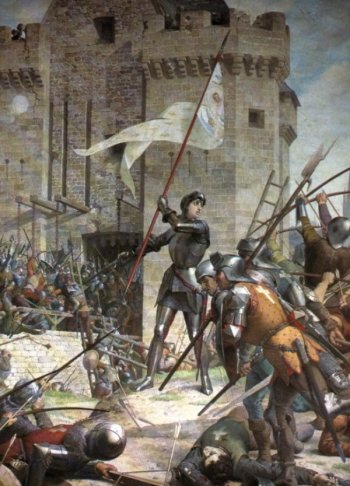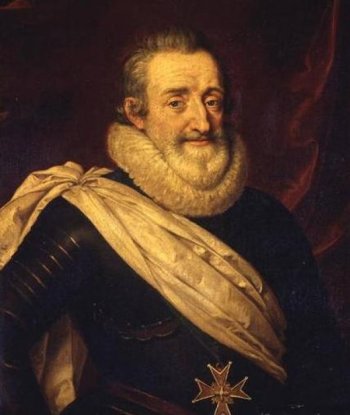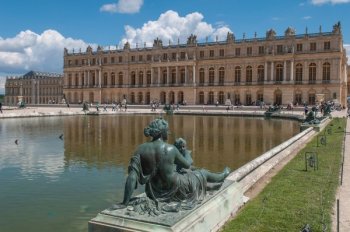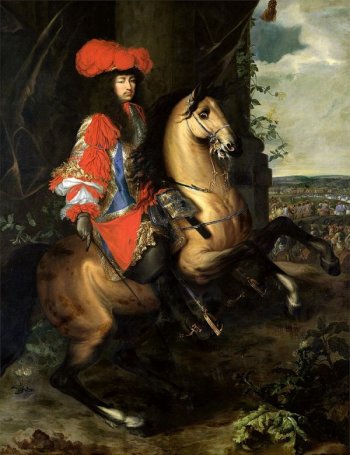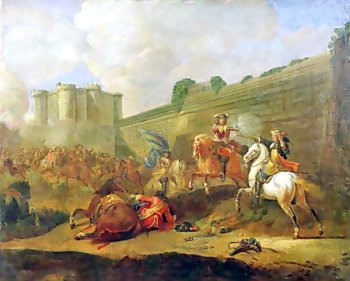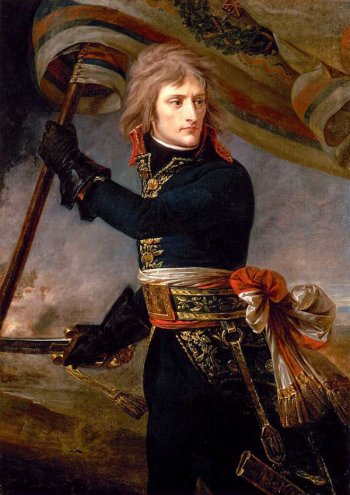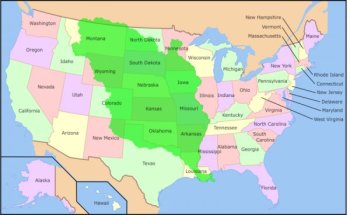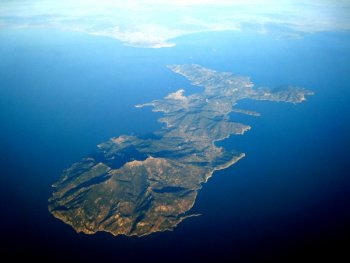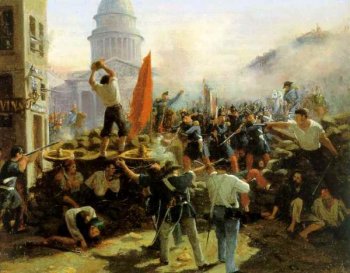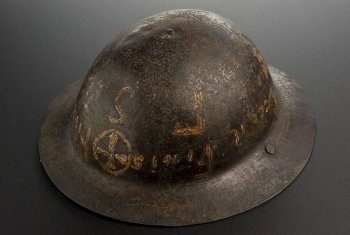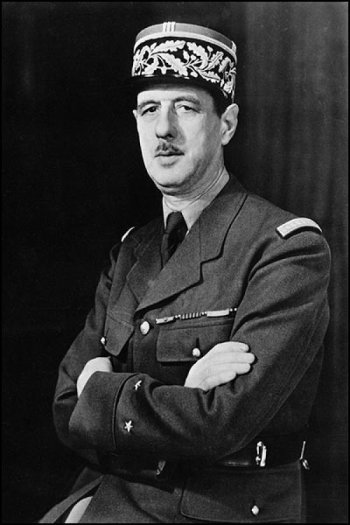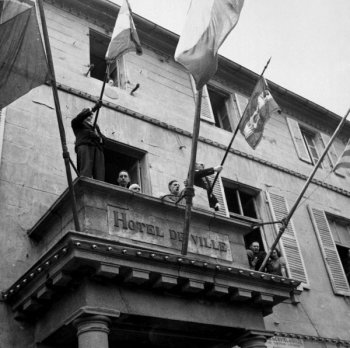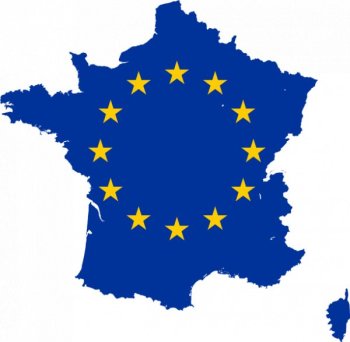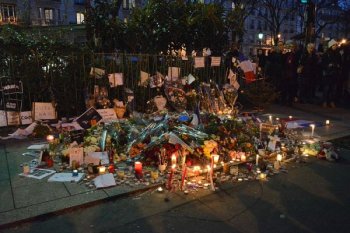History: Historical Timeline
Prehistory
| Date | Event |
|---|---|
| c. 1,500,000 BCE | Early hominids use stone tools. |
| 400,000 BCE | Neanderthals roam the region. |
| 41,000 BCE | Homo sapiens paints images of animals on the walls of caves at Lascaux, in southwestern France, and Gargas in the Pyrénées mountains, and use stone tools at Carnac. |
| 30,000 BCE | Perhaps due to the cold weather of the most recent Ice Age, the Neanderthals disappear, replaced by their cousins, Homo sapiens. |
Ancient History
| Date | Event |
|---|---|
| 600 BCE | Greeks from Phocaea establish Massalia, a colony on the Mediterranean shore near Marseille, and Nikaia (Nice). Meanwhile, in the northeast, Celtics tribes arrive but do not establish permanent settlements. |
| 400–100 BCE | Celts occupy much of what the Romans call Gaul, covering most of France and Belgium and part of Germany, and establish two major cities: Lutetia Parisiorum (Paris) and Burdigala (Bordeaux). At the same time, Aquitanians settle Tolosa (Toulouse). Rome makes steady advances across the region, meeting resistance from Greeks in the south and Celts in the north. |
| 58–51 BCE | The great Roman leader Julius Caesar finally conquers the stubborn Celts and lays claim to all of Gaul, establishing a rule that would last 500 years. |
| 486 CE | Frankish armies, composed of Germanic tribesmen from the area around the Rhine River, drive out the last of the Romans, although the region retains its identity as Gallia and the dominant language remains Latin. |
| 768 CE | Charlemagne succeeds his father as King of the Franks and embarks on a campaign to unite all of Western Europe. With support from the Pope of Rome, Charlemagne spreads Catholicism across his kingdom, and forcibly converts or displaces Muslims who had gained a powerful foothold in Spain. |
| 887 | Charlemagne's descendants struggle to keep the empire united. Divisions within the family lead to their splitting the kingdom into a Frankish west, eventually known as France; and a Saxon east—the future Germany. Vikings, Goths, Vandals, and others each take stabs at overthrowing the Franks, but none succeed; rather, sibling rivalries ultimately give France its identity. |
Kingdom of France
| Date | Event |
|---|---|
| 987–1328 | The House of France, also known as the Capetian dynasty, is founded by Hugh Capet, a descendant of the Franks, whose line rules for 350 years. Under the Capetians, the kingdom is steadily unified, with the power and authority of the royal house all but unchallenged throughout the realm. A strong alliance with the Roman Catholic Church not only solidifies its power, but abets its aggressive spread of Catholicism; the dynasty produces no fewer than five Crusader Kings—Louis VII, Philip Augustus, Louis VIII, Saint Louis, and Philip III. The introduction of Gothic architecture is a hallmark of late Capetian rule. |
| 1328 | The House of Valois supplants the Capetian dynasty and engages in constant conflict with the British Plantagenets in what becomes knows as the Hundred Years' War. |
British Rule
| Date | Event |
|---|---|
| 1420 | Depleted by war and the devastating plague, or Black Death, France and England unify their crowns with the Treaty of Troyes; Henry VI of England assumes the consolidated throne of England and France. |
| 1431 | May 30. Joan of Arc is burned at the stake for agitating against British rule, awakening a spirit of French nationalism. |
| 1453 | French King Charles VII defeats the Plantagenets at the Battle of Castillon, finally ending British domination of France (although Calais and the Channel Island remain in English hands). |
Bourbon Rule
| Date | Event |
|---|---|
| 1589 | The reign of the House of Valois ends, supplanted by the first of the Bourbon kings, Henry IV. At an estimated 20 million inhabitants, France is the most populous country in Europe and its power rises commensurate to its population. The nation is prosperous, and great works of art and architecture flourish. Yet the people are only starting to sense a national identity; villages are still the central organizing unit of average French people, and the local nobleman (and his private army) the presiding authority. Although French is spoken at court in Paris, most peasants speak local dialects. ("I speak Spanish to God, Italian to women, French to men, and German to my horse," quipped Holy Roman Emperor Charles V.) It will be another 20 years, with the reign of the first of the many kings named Louis, before a true French national identity takes widespread root. |
| 1598 | The Protestant Reformation is in full swing across Europe. At the urging of his chief minister Cardinal Richelieu, the former Protestant King Henry IV converts to Catholicism and signs the Edict of Nantes, giving rights to the roughly 2 million Huguenots, as French Protestants are known, despite Catholicism being the official state religion. Decades of religious conflict beset the kingdom. |
| 1604–1608 | With Samuel de Champlain's voyage to North America, France seeks to gain influence in the New World. De Champlain establishes Port Royal, the first permanent European settlement north of Florida. Traveling north, he explores the Great Lakes of the United States and founds New France—including Montreal and Quebec City. |
| 1643 | The “Sun King,” otherwise known as Louis XIV, assumes the French throne and sets about consolidating power in the monarchy by weakening the aristocracy and concentrating authority in Paris. During his long rule, Louis XIV propounds the notion of the divine right of kings—that the monarch is second only to God in his unchallengeable authority and not subject to the will of the people, the church, or the noble class. During his reign the arts flourish, an opera house is constructed, French Baroque architecture is the rage, and, in 1682, he opens the doors of his unspeakably lavish palace at Versailles. Near constant war during his reign, primarily with Spain, depletes the national treasury. |
| 1685 | October 22. Louis XIV reverses the Edict of Nantes by signing the Edict of Fontainebleau, reaffirming the French state's commitment to Catholicism and outlawing all other religions. Millions of Huguenots are forced either to convert or flee. |
| 1763 | France loses its North American empire when it signs the Treaty of Paris, bringing to a close a succession of wars over control of its Canadian and US colonies. |
| 1778 | Seeking to regain a foothold in the Americas, France allies itself with the newly independent United States in its war with Great Britain, sending both armies and navies to support the fledgling country. Although the British are eventually defeated, France is left weak and in debt. Meanwhile, the French world of arts and ideas flourishes, with great minds like Voltaire, Rousseau, Diderot, and Lavoisier producing their most enduring works. |
French Revolution
| Date | Event |
|---|---|
| 1789 | July 14. All but bankrupt from its wars with Spain and in the US, its administrative functions in disarray at home, and the populace deeply unhappy over food shortages and widespread poverty, the country is ripe for revolution. Insurgents attack the Bastille, not only a prison but a major fortress well stocked with arms and ammunition. August. The newly convened assembly adopts “The Declaration of the Rights of Man” as a precursor to a new, democratic constitution. The assembly also seeks to balance power and wealth internally by disposing of the old provincial organization and creating a new system consisting of 83 departments, each more or less equal in population and size. No less significant is the new government's attitude toward the Catholic Church, formerly the country's largest landowner. By essentially confiscating church property, the new government stabilizes the country's finances and eliminates a major threat to its power and authority. |
| 1791 | October 1. France convenes its first legislature under its new constitution. Louis XVI remains king in name only; the government is organized as a constitutional monarchy, with real power resting with the parliament. |
First Republic
| Date | Event |
|---|---|
| 1793 | January 21. King Louis XVI is executed by guillotine as factional fighting has the government deeply divided between those who prefer a more authoritarian state and those with more democratic leanings. The conflict erupts in violence on the streets of Paris as the Reign of Terror begins. Thousands are rounded up and executed in a year-long campaign to restore order, while the country is embroiled in foreign wars, most notably with Great Britain and the Hapsburgs of Austria. |
| 1799 | Napoléon Bonaparte stages a coup d'état and installs the Consulate to manage affairs of state, with himself as First Consul. Technically still operating under the constitution of the First Republic, the Consulate is an autocratic, authoritarian government that seeks to restore order after the tumult of the post-Revolutionary period. |
| 1802 | Napoléon sells the Louisiana territory to the US government in a deal known as the Louisiana Purchase. |
First Empire
| Date | Event |
|---|---|
| 1804 | Napoléon dissolves the government and declares the First Empire, with himself as Emperor Napoléon I. |
| 1807 | Napoléon attacks Spain and, upon the abdication of King Charles IV, installs his brother Joseph as the new king of Spain. Wars rage across Europe, with France battling the British and Austrians in what amounts to a stalemate. |
| 1812 | Napoléon invades Russia with the largest European army ever assembled. But the campaign is ill conceived; when the Emperor's Grande Armée marches into Moscow, it finds the city in flames, the Russians themselves having employed a scorched earth policy. Late in the year, exhausted and depleted, the French army decamps for home, ravaged by a brutal Russian winter. |
| 1813 | Spanish guerillas see the opportunity to regain lost territory from the now-depleted French army. Summer. The French leave Spain, as well. Meanwhile, Napoléon's former German allies take advantage of France's weakened state and switch allegiance, reclaiming the territory that had formerly been part of the French Empire. |
| 1814 | April 6. Embattled at home and defeated abroad, Napoléon abdicates and is exiled to the island of Elba. |
| 1815 | With one final attempt to regain his former glory, Napoléon is finally defeated, this time for good, at the Battle of Waterloo. The empire in ruins, the monarchy is restored and the Bourbon king Louis XVII ascends to the throne. |
Second Republic
| Date | Event |
|---|---|
| 1848 | The Bourbon king is overthrown, a feeble democracy takes hold, and a nephew of Napoléon is elected president. Shortly thereafter, he declares himself Napoléon III. |
| 1870 | Germany defeats Napoléon III in the Franco-Prussian Wars and he is overthrown. The monarchy in France is finished for good. |
Third Republic
| Date | Event |
|---|---|
| 1870–1914 | The country prospers. It constructs an elaborate railway system that drives the economy, provides schools to the peasant population and teaches everyone standardized French, and institutes universal military conscription. The combined effect of these moves is to forge a new national identity. As the country prospers, it extends its colonial presence in Africa and Indo-China. |
World War I
| Date | Event |
|---|---|
| 1914 | August 3. France finds itself at war yet again when Germany sends its powerful armies through neutral Belgium. Tired of its adventures abroad, France is focused on developing its culture and economy, paying little notice to the storm clouds gathering to the east. It is ill-prepared for the German onslaught. German forces advance to within 40 miles of Paris, where they are stopped by French troops. A period of stalemate ensues, with both side entrenched in static lines of defense. Casualties on both sides are horrendous, with neither combatant gaining ground on the other. |
| 1918 | Having vanquished the Russians in the east, the Germans focus their resources on the Western Front, making an all-out advance for Paris. Reinforced by US and British forces, the French lines hold, and the Allies eventually push the Germans back. By autumn, Germany surrenders and the government of Kaiser Wilhelm falls. November 11. An armistice is signed, ending World War I. |
Post-War Period
| Date | Event |
|---|---|
| 1920–1930 | The post-war period is a prosperous one for France. At home the arts and culture flourish, while abroad the country's colonial interests in Africa, Southeast Asia and the Middle East—including the Mandates of Syria and Lebanon that it won from Germany as part of the armistice—create business opportunities for France's increasingly industrialized economy. The Great Depression that devastates the United States and other countries largely spares France; the country has no banking crisis, and its economy barely suffers. When Germany fails to make its war reparation payments, France begins to construct an elaborate defensive line along its northeastern border. The decision to end the Maginot Line at the Belgian border would prove fateful in short order. |
| 1931–1938 | France pays little heed to the growing threat Germany is posing. The rise to power of Adolph Hitler is a cause for concern, but not alarm. |
World War II
| Date | Event |
|---|---|
| 1939 | September 1. Hitler's German army invades Poland, triggering the mutual defense pact France has with Poland. But rather than come to Poland's aid, France assumes a defensive posture, declaring war on Germany but mobilizing its troops only within French borders. |
| 1940 | May. With Poland vanquished, Germany turns its attention to France, invading through Belgium, beyond the Maginot Line. The French lose 90,000 men in just six weeks. As many as 12 million French people leave their homes and begin moving south and west in what is the largest wartime displacement in history. June. German forces reach Paris and the city falls. Before the end of the year, Germany occupies 60 percent of France. The Vichy government in southwest France is ostensibly in charge of the unoccupied regions, but in fact it, too, is soon controlled by Germany. Charles de Gaulle establishes the Free French Forces to combat the Nazis. |
| 1944 | June 6. Allied forces stage a massive invasion of Normandy, in northwestern France, and begin the long, difficult march to Paris, driving German forces east along the way. August. Germany is in full retreat as the Allies liberate the capital. De Gaulle's Free French Forces complete the defeat of Germany. The Vichy government collapses and, toward the end of the year, the heroic General de Gaulle establishes the Provisional Government of the French Republic, an interim government composed of communists, socialists, and democratic republicans. |
Fourth Republic
| Date | Event |
|---|---|
| 1946 | The Fourth French Republic replaces the provisional government; thousands of French people believed to have collaborated with the Vichy government are executed, most without trial. A new constitution is adopted, giving women the right to vote, and democracy is once again restored to France. |
| 1948 | France is among the first European nations to recognize the new state of Israel, and is a major supplier of arms to the Jewish state. |
| 1950–1958 | A post-war baby boom expands the depleted population dramatically. The country painstakingly rebuilds its infrastructure, even as its colonies in Africa and Indo-China disintegrate. |
Fifth Republic
| Date | Event |
|---|---|
| 1958 | Charles de Gaulle is elected president of France. Under de Gaulle, the country pursues an independent foreign policy, resisting military participation in the North Atlantic Treaty Organization (NATO) and frequently opposing the US and Great Britain in the United Nations. France becomes the world's fourth nuclear power. |
| 1960 | De Gaulle restores friendly relations with Germany to counter growing US and British power. |
| 1968 | Massive student protests create civil unrest in Paris. De Gaulle calls on the military to crush the rebellion. Though his party retains power in national elections, popular discontent with his government leads to his resignation the following year. |
| 1992 | France ratifies the Maastricht Treaty to create the European Union. The country now seeks great integration with Europe. |
| 1999 | France joins with other NATO forces in the bombing of Serbian forces in Yugoslavia, signaling its renewed commitment to the treaty organization. |
| 2001 | In 1798 France became the first modern nation state to require military service of it's male citizens. In 2001 that practice is ended. |
| 2002 | January. The franc, first minted in 1390, is replaced by the euro. France joins other western nations to topple the Taliban in Afghanistan, but strongly opposes the US invasion of Iraq the following year. |
| 2005 | Proposed labor, pension and welfare reforms inspire trade unions to organize a series of public sector strikes. |
| 2008 | October. European governments respond to the global financial crisis by promising to inject €1.8 trillion back into their countries' economies. France will help bailout it's six largest banks with €10.5 billion in aid. |
| 2010 | September & October. Hundreds of thousands come out in several protests led by trade unions, opposing the government's plans to raise the retirement age to 62. |
| 2011 | April. France institutes a ban on full-face veils. |
| 2012 | The credit agency Standard and Poor's reduces France's credit rating from AAA to AA+. President Hollande announces France will withdraw its remaining troops from Afghanistan one year earlier than previously expected. |
| 2013 | May. France's economy shrinks by 0.2 percent in the first quarter. The country enters it's second recession in four years. November. Standard and Poor's (S&P) continues to downgrade France's credit rating because of record high unemployment. December. As civic and political unrest flares in the Central African Republic, Frace sends 1,600 troops to help restore order. |
| 2014 | November. With 3,488,300 people looking for work in France, President Hollande says if he fails to bring down the record-high joblessness then he will not seek reelection. |
| 2015 | Rising tensions among France's Muslim community culminate in a terrorist attack on the offices of a satirical newspaper, Charlie Hebdo, and a kosher grocery store in Paris. Seventeen people are killed. The country grapples with an increasingly radicalized Muslim minority. Terrorist attacks in Paris kill 130 people. The attacks are the deadliest in France since the Second World War. France declares a state of emergency and launches a bombing campaign in Syria. |
| 2016 | July. The Islamic State claims responsibility for a lorry attack that kills 84 people. The attack was on a crowd of people celebrating Bastille day. |
| 2017 | May. Centrist Emmanuel Macron beats the far-right National Front's Marine Le Pen in the presidential election. Neither the Socialists nor the Republicans, the countries two main political parties, made it into the run-off round of the election. |
| 2018 | July. The country wins football's World Cup, beating Croatia 4-2. |
| April 15, 2019 | A major fire engulfs the medieval cathedral of Notre-Dame in Paris, one of France's most famous landmarks. About 500 firefighters work to contain the blaze, though the 850-year-old Gothic building's wooden interior, spire, and roof collapse. |
| 2020 | January 24. The first confirmed cases (three) of COVID-19 are identified in France, and they are the first confirmed cases of the deadly coronavirus in Europe. Less than two months later, the spread of the virus is declared a pandemic by the World Health Organization. October 16. French schoolteacher Samuel Paty is murdered by an Islamic terrorist who was angered after Paty showed cartoons of the Prophet Mohammed in a class on freedom of expression. Paty had let his Muslim students know in advance about the cartoons and gave them the option to not attend the class. Marches and memorials are held in his honor across the country. Seven people are arrested in connection with Paty's death. |
| 2021 | July. The United Nations Educational, Scientific and Cultural Organization (UNESCO) adds three French sites to its World Heritage List due to their cultural significance. They include Cordouan Lighthouse, built in the 17th century and France's last inhabited lighthouse; the resort city of Nice on the French Riviera, popular since the 18th century for its climate and beaches; and the spa town of Vichy, Allier, one of the eleven Great Spa Towns of Europe. August. France wins 33 medals at the Tokyo 2020 Olympic Games, postponed one year due to the coronavirus pandemic. They include 10 gold, 12 silver, and 11 bronze medals. November. Josephine Baker—singer, movie star, civil rights activist, and spy for the French resistance—is the first black woman to be inducted into France’s Panthéon, one of the highest honors France can bestow on its citizens. |
Copyright © 1993—2025 World Trade Press. All rights reserved.

 France
France 